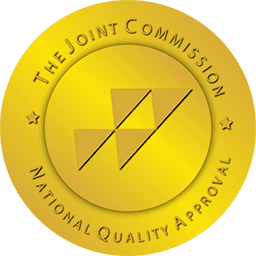[vc_row type=”in_container” full_screen_row_position=”middle” column_margin=”default” column_direction=”default” column_direction_tablet=”default” column_direction_phone=”default” scene_position=”center” text_color=”dark” text_align=”left” row_border_radius=”none” row_border_radius_applies=”bg” overflow=”visible” overlay_strength=”0.3″ gradient_direction=”left_to_right” shape_divider_position=”bottom” bg_image_animation=”none”][vc_column column_padding=”no-extra-padding” column_padding_tablet=”inherit” column_padding_phone=”inherit” column_padding_position=”all” column_element_direction_desktop=”default” column_element_spacing=”default” desktop_text_alignment=”default” tablet_text_alignment=”default” phone_text_alignment=”default” background_color_opacity=”1″ background_hover_color_opacity=”1″ column_backdrop_filter=”none” column_shadow=”none” column_border_radius=”none” column_link_target=”_self” column_position=”default” gradient_direction=”left_to_right” overlay_strength=”0.3″ width=”1/1″ tablet_width_inherit=”default” animation_type=”default” bg_image_animation=”none” border_type=”simple” column_border_width=”none” column_border_style=”solid”][vc_column_text]Alcohol withdrawal lasts around 4 days and peaks between 48 hours to 96 hours after the last consumption of alcohol. It happens when a person dependent on alcohol suddenly stops drinking or, as is often the case, no longer has access to alcohol. For heavy drinkers, alcohol withdrawal is painful and can be dangerous.
Alcohol withdrawal is a serious, often dangerous syndrome that can be lethal. However, there are proven and reliable ways to come through it safely and relatively comfortably.
Understanding Alcohol Withdrawal
Alcohol withdrawal occurs because a person’s body, particularly their nervous system, has become dependent on alcohol. Here’s how that happens:
Our brains monitor and regulate the levels of essential chemicals it produces and keep them balanced. That’s important because some of these chemicals, neurotransmitters, speed the brain and body up, while others slow things down. The brain attempts to keep us on an even beam, perfectly balanced between energized and relaxed.
Alcohol smashes this balance. It works as a central nervous system depressant. It decreases the production of neurotransmitters that speed up bodily functions while boosting neurotransmitters that slow us down and make us feel good, calm, or even euphoric.
The brain recognizes a fundamental and externally induced imbalance in its chemistry. Therefore, it attempts to compensate for the imbalance by producing less calming neurotransmitters and more neurotransmitters that increase nervous activity.
Over time, sometimes years, alcohol changes a person’s nervous system to such a degree that it loses the ability to manage itself. At this point, a person depends on alcohol to regulate their entire nervous system. As a result, even a brief interruption in alcohol consumption causes intense, overpowering cravings to drink.
Signs of Alcohol Withdrawal
Alcohol withdrawal progresses in stages; each stage becomes more painful and increases health risks. The early symptoms and signs of alcohol withdrawal start within hours of a person’s last drink and include:
- Stomach cramps
- Intense Nausea
- Vomiting
- Sweats
- Increase anxiety
- Muscle aches, muscle spasms
When Does Alcohol Withdrawal Begin?
Alcohol withdrawal begins within 12 hours after the last consumption of alcohol, although it can start as early as 6 hours after the last drink. The onset of alcohol withdrawal varies based on the physical and psychological health of the drinker, as well as several other factors, including how much alcohol and how long they’ve been drinking.
How Long Does Alcohol Withdrawal Last?
The alcohol withdrawal timeline lasts from 2 to 8 days, with symptoms peaking 48 to 96 hours after the last consumption of alcohol. Additionally, people with severe withdrawal symptoms may take 10 days to return to a balanced physical state.
Stages of Alcohol Withdrawal
Not everyone will experience every symptom of each stage, and some withdrawal symptoms may be more pronounced than others.
- Stage 1 (mild): Stage 1 will start between 6 and 12 hours after a person’s last drink. Although uncomfortable, stage 1 symptoms of alcohol withdrawal are not dangerous. They include hand tremors, nausea, stomach cramps, excessive sweating, chills, muscle aches, and elevated anxiety. If a person already has an anxiety disorder, panic attacks become more likely.
- Stage 2 (moderate). Stage 2 occurs in the next 12 to 48 hours. In the second stage, expect any stage 1 signs to continue and develop into confusion, abnormal and rapid breathing, elevated blood pressure, and increased heart rate. At this point, medical intervention will likely be needed.
- Stage 3 (severe): Beginning at 48 to 72 hours into withdrawal, stage 2 symptoms may continue, with more severe signs appearing, such as dangerously elevated blood pressure, fever, severe disorientation, and delirium tremens (DTs). DTs are a cluster of physical symptoms that include visual and auditory hallucinations. If a person progresses to stage 3, medical intervention is necessary. Unfortunately, about 5 percent of those people who experience DTs without professional medical care die.
Risk factors for Alcohol Withdrawal
People with any form of brain injury or seizure disorder are more likely to experience severe alcohol withdrawal symptoms. Those with high blood pressure, liver disease, heart disease, or heart arrhythmias are also at an elevated risk of severe withdrawal. Anyone who has experienced serious alcohol withdrawal symptoms is also more likely to experience serious symptoms in the future.
When to Seek Help
It’s always a great idea to seek help when quitting alcohol. Medically supervised inpatient detoxification is the safest and most comfortable way to get through alcohol withdrawal. A part of the rehabilitation process, detoxification is how any drug of addiction, including alcohol, leaves a person’s body. It can be accomplished through the help of medications and medical support to ensure a person’s safety.
If alcohol consumption has led to significant negative consequences in your or a loved one’s life, recovery is possible. If you are unsure whether inpatient treatment is the best option for you, call us, and we will help you determine what treatment option would benefit your unique case the most.
For more information on our program for alcohol addiction recovery in New Jersey, give us a call today.
References
- Trevisan LA, Boutros N, Petrakis IL, Krystal JH. Complications of Alcohol Withdrawal. Alcohol Health Res World. 1998;22(1):61-66.
- De Witte P. Imbalance between neuroexcitatory and neuroinhibitory amino acids causes craving for ethanol. Addictive Behaviors. 2004;29:1325-1339. doi:10.1016/j.addbeh.2004.06.020
- ALCOHOL’S DAMAGING EFFECTS ON THE BRAIN. Accessed January 15, 2023. https://pubs.niaaa.nih.gov/publications/aa63/aa63.htm
- De Witte P. Imbalance between neuroexcitatory and neuroinhibitory amino acids causes craving for ethanol. Addict Behav. 2004;29(7):1325-1339. doi:10.1016/j.addbeh.2004.06.020
- Newman RK, Stobart Gallagher MA, Gomez AE. Alcohol Withdrawal. In: StatPearls. StatPearls Publishing; 2022. Accessed January 15, 2023. http://www.ncbi.nlm.nih.gov/books/NBK441882/
- Weil ZM, Corrigan JD, Karelina K. Alcohol Use Disorder and Traumatic Brain Injury. Alcohol Res. 2018;39(2):171-180.
- Goodson CM, Clark BJ, Douglas IS. Predictors of severe alcohol withdrawal syndrome: a systematic review and meta-analysis. Alcohol Clin Exp Res. 2014;38(10):2664-2677. doi:10.1111/acer.12529
[/vc_column_text][/vc_column][/vc_row]













